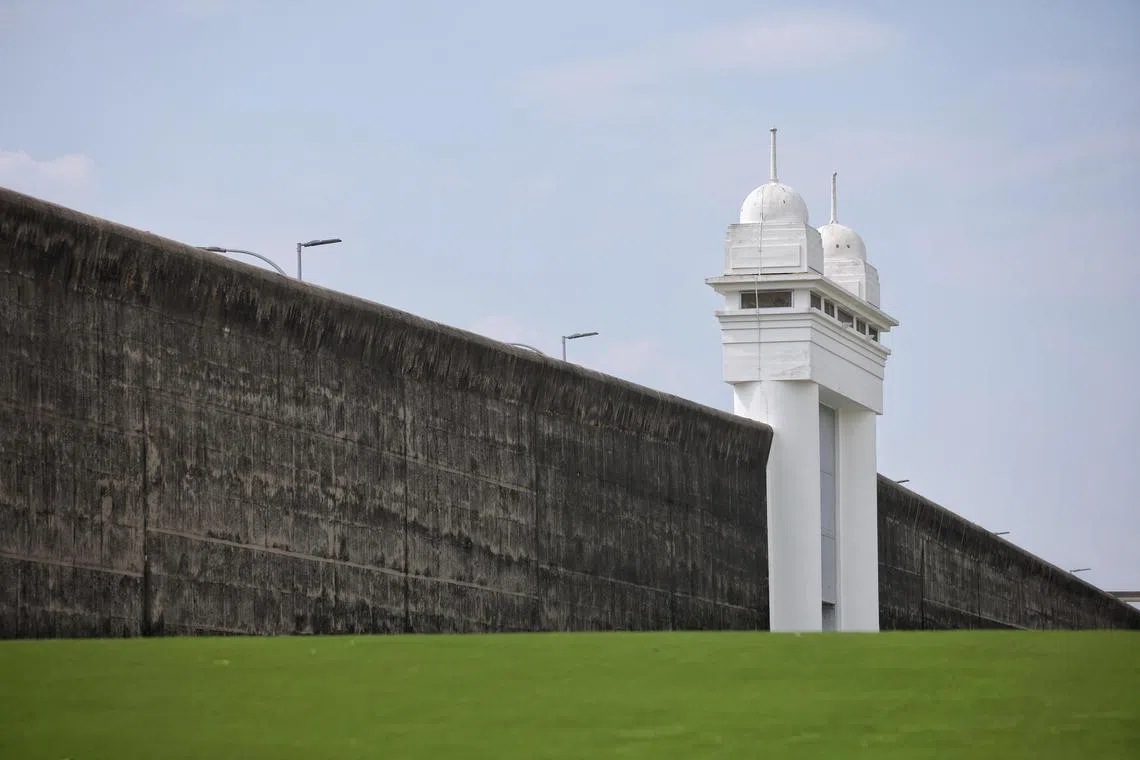10 transgender persons behind bars, no assaults against such inmates reported: S’pore prisons
Sign up now: Get ST's newsletters delivered to your inbox

The Singapore Prison Service said there have been no cases of assault against transgender inmates in prison.
PHOTO: ST FILE
SINGAPORE – There are currently 10 transgender inmates behind bars, with one of them having undergone a complete sex change, while the remaining nine are in the process of transitioning.
The Singapore Prison Service (SPS) told The Straits Times that there have been no cases of assault against transgender inmates in prison.
How transgender inmates are housed in prison here was broached in Parliament on Nov 7 by MP Murali Pillai (Bukit Batok), in the light of a recent incident in Scotland where a transgender person, convicted of double rape of women, was initially housed in segregation in an all-female jail.
The Scottish sex offender, Isla Bryson, was undergoing hormonal treatment to transition to a woman and was remanded in a women’s prison while awaiting sentence.
However, Bryson still had male genitalia and was registered as male.
Housing Bryson in an all-female jail is in line with the Scottish Prison Services’ policy, which determines housing arrangements based on an inmate’s “new gender”, Home Affairs Minister K. Shanmugam told Parliament.
The prospect of a convicted male rapist serving a sentence in a women’s prison sparked public debate and concerns about the safety of the other prisoners, he added, noting that Bryson was moved to a male prison facility in response to the public debate.
“In Singapore, our primary consideration is the safety of the inmates. As a rule, inmates are housed in a male or female institution based on their registered sex, and not their self-identified gender,” said Mr Shanmugam.
He added: “There may be situations, however, where it may be better not to house an inmate with other inmates of their registered sex for considerations of safety – either for the safety of the inmate, or the safety of the other inmates.”
For example, a male inmate who is transitioning and has developed female features such as breasts may not be completely safe being housed together with other male inmates, said Mr Shanmugam.
But inmates in a female institution may not feel comfortable being housed with a former male who has just completed transitioning to be a female, especially if the person had previously committed sexual offences.
In such cases, SPS may house an inmate alone in an individual cell within the institution of their registered sex, or in a shared cell with other inmates who are in the same situation.
In scenarios where inmates are found to have external genitalia different from their registered sex during their medical examination upon admission, SPS may first house them in individual cells according to their registered sex.
SPS will then facilitate an examination by a medical specialist to assess if the inmate has completed a physical change in genitalia, and if so, SPS will help the inmate update their registered sex with the Immigration and Checkpoints Authority (ICA), said Mr Shanmugam.
This is in line with ICA’s requirements that a person’s sex change must first be verified by a local relevant medical specialist before it updates the registered sex of the person in its database.
SPS told ST that transgender inmates who have completed their sex change will be housed at institutions according to their changed registered sex. There is currently one such inmate who has undergone a complete sex change.
It did not share more details on the nine transitioning inmates, including on their sex, to protect their identities.
SPS assesses housing arrangements for inmates who are transitioning on a case-by-case basis.
Echoing the approach Mr Shanmugam stated in Parliament, it said: “The primary consideration is the overall protection and safety of the inmate and of other inmates, and is not based on the inmate’s self-identified gender.”
Based on its assessment of suitability and safety, SPS may conduct programmes and counselling for transgender inmates individually, with other transgender inmates, or with other non-transgender inmates.
All inmates have access to programmes and interventions to address their criminogenic thinking and behaviour, improve their pro-social skills, enhance their employability and other protective factors.
They also have regular interviews with their correctional unit officers, and have access to mental health support. They can also ask to see a prison medical officer or a prison psychiatrist for any mental health needs, SPS said.
When transgender inmates are released from prison, they also receive support to reintegrate into the community. SPS works with shelters such as T-Project and Aurora Place @ Willing Hearts to house transgender inmates who are found suitable for community-based programmes but do not have family support.



